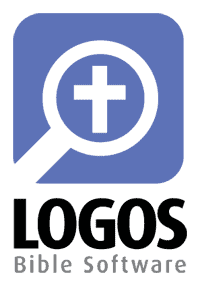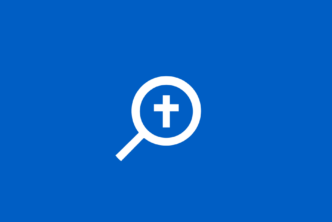Almost 20 years ago we started Logos Bible Software with the idea of building a tool to help people study the Bible. Over the years Logos has grown from two programmers in a basement with one idea to 200 people offering 10,000 resources for Bible study.
As you can imagine, our mission has changed along the way, too. Today it reads:
To help more people do more and better Bible study.
Okay, so the mission hasn’t changed much; we added some adjectives. We have spent a lot of time on the plan of execution, though, and I thought I should share it with you so you can understand what we’re doing, what we’re going to be doing, and why.
First, the fundamentals:
Logos is all about Bible study. We’ve released software, a paper magazine, and video training materials. We host a conference. We’re on multiple technology platforms. We’re on the desktop and on the web. How does everything fit together? It’s all about Bible study.
Logos leverages technology. We choose projects that leverage our technology expertise. Even if a project isn’t software, you can be sure our decision to do it was based on leveraging technology. Of course technology isn’t essential to Bible study; it’s just our particular skill, and a place where we can serve well. We’re following centuries of non-technology-based Bible study tools, and many organizations serve that need well already.
Logos harnesses the network effect. Each e-book we add to our system is extensively tagged and linked to all the others. The scholarly translations and databases we build are both made with and delivered inside our software; the books and articles we commission build on content we offer and help users go deeper with our tools.
Logos is easy. The real work of Bible study is inside the student. We just provide tools and resources, so we need to focus on equipping without obstructing. The easier we make it to get into Bible study, the more people we can encourage to do it. The easier the tools, the more likely people can do better study. Easy means excellent user interface. Easy means elegant design that engages the student. Easy means fantastic customer service so a technical problem or misunderstanding doesn’t get in the way of getting into the Word.
Now, the plan:
Access. An internal joke at Logos goes “If it isn’t in the Passage Guide, it doesn’t exist,” because resources aren’t useful if you can’t find them. Logos Bible Software makes it easy to access the resources in your library when and where you need them. Our “one license, any platform” philosophy means you can access your content on Mac, Windows, iPhone, iPad, smart phone, and the web. We plan to offer even more interfaces in the future. We are planning task-specific mobile applications that connect to your library and web sites tailored to specific data sets.
Your Logos.com account will let you access your content (and documents you create) wherever you are, with whatever interface you need.
Content. We are planning more content for Bible study. Our scholarly translations and databases already make it easier to study the Bible in Greek and Hebrew; our visual resources are an aid in understanding and teaching others. Behind the scenes, we are building metadata that links content together and improves discoverability. An extensive set of tools lets you create your own content, too, ranging from notes to highlights to sentence diagrams. Synchronization with your Logos.com account connects your content to you, not a specific device.
Community. We study, learn, teach, and share in community with others. We are planning new ways to connect with others around Bible study. We will have ways to collaborate on documents, aids to studying in a group, and tools that help you share the fruit of your study with others. You will be able to link your Logos.com account to multiple groups and choose what you share with the communities important to you. And because we know that Logos Bible Software is itself part of a larger community, we plan new ways to connect our tools with the work of others.
Access, content, and community are interwoven; each both enables and is enabled by the other two. The connection point is your Logos.com account. Already this single login manages your content on multiple platforms and identifies you in communities like the Logos Forums and Sermons.Logos.com. In the future it will be even more valuable. (Is your profile filled in?)
How will this master plan be manifested?
That’s the exciting part: we are going to find out together.
We have some ideas, though, and you can see them starting to come together.
Books.Logos.com shows a content-specific search interface for scanned books from a seminary library. (We plan to link Logos Bible Software 4 to this site in the future.)
Sermons.Logos.com shows how community-created content can be shared with new users on the Internet and (through a section in the Passage Guide) inside Logos Bible Software.
Biblia.com is an alternate interface to most of the content in your digital library that is easy to use over the web. For some users it may be all they need for simple Bible reading; for others it’s a way to check a book when they aren’t at their own computer.
Topics.Logos.com exposes the Logos Controlled Vocabulary to everyone, and lets users contribute web links and share reading lists that will automatically show up in Logos 4.
Almanac.Logos.com lets our community of users search and edit a growing database of information on the Christian world (particularly seminaries, at this point). This database provides a platform for connecting users by school, organization, denomination, and area of interest.
Api.Biblia.com offers the power of Logos Bible Software to other web sites, enabling mashups and creative ideas we never imagined.
And we’re not done. There are new projects coming, and we are experimenting and learning as we go. We need to hear from you about what you need, and your ideas about how we can serve and connect more people who want – who need! – to study the Bible.
I am excited about our “master plan,” and thrilled that we get to play this small part in The Master’s Plan. Thanks for sharing in it with us!





